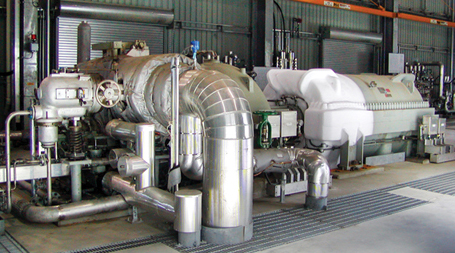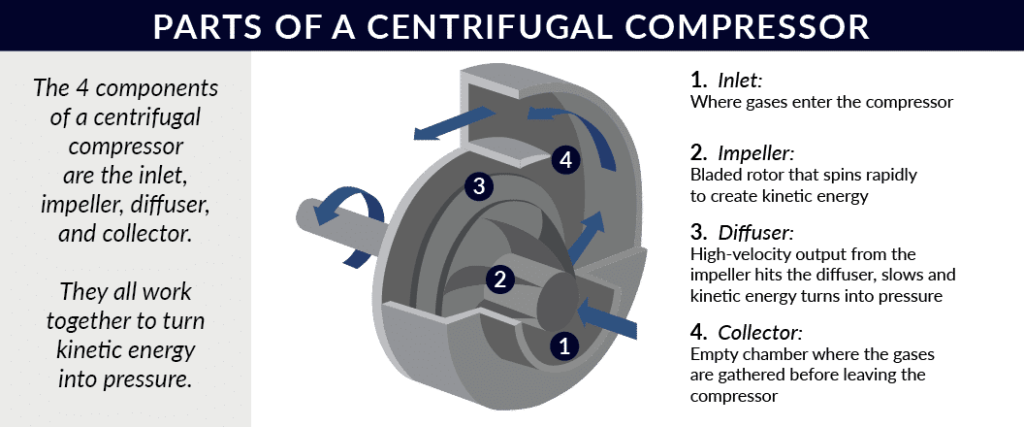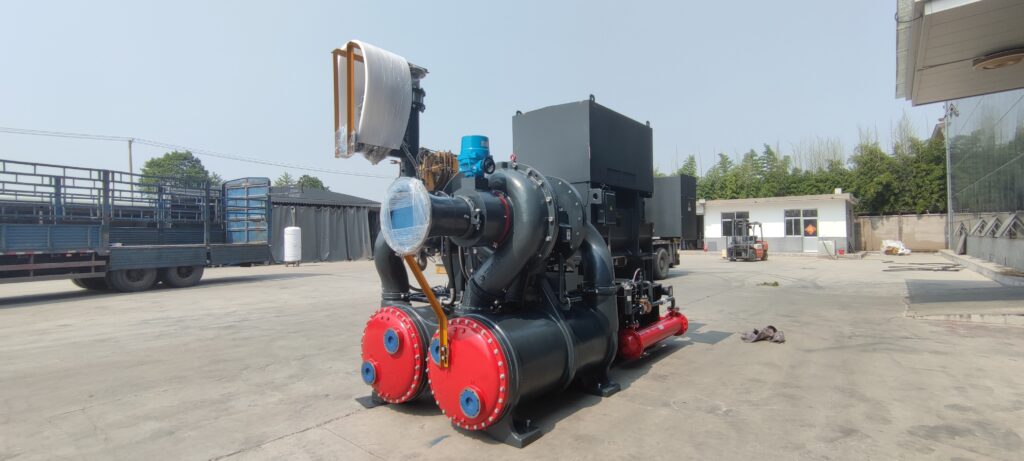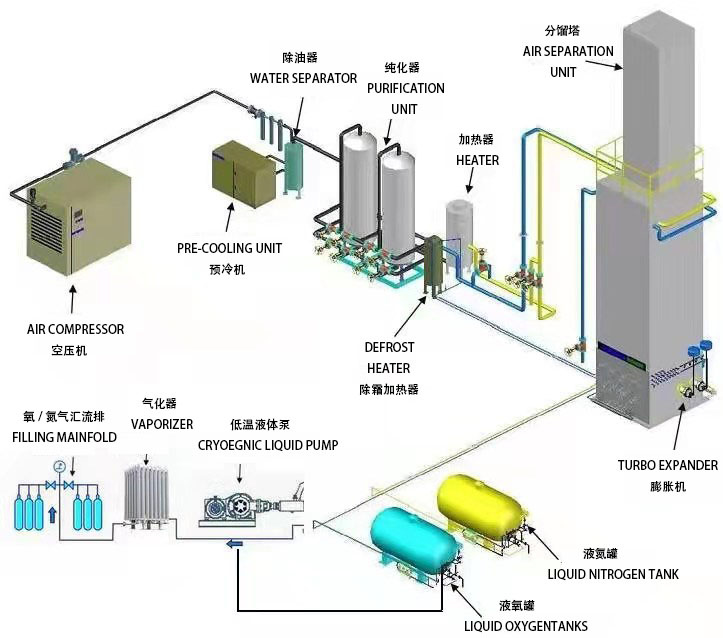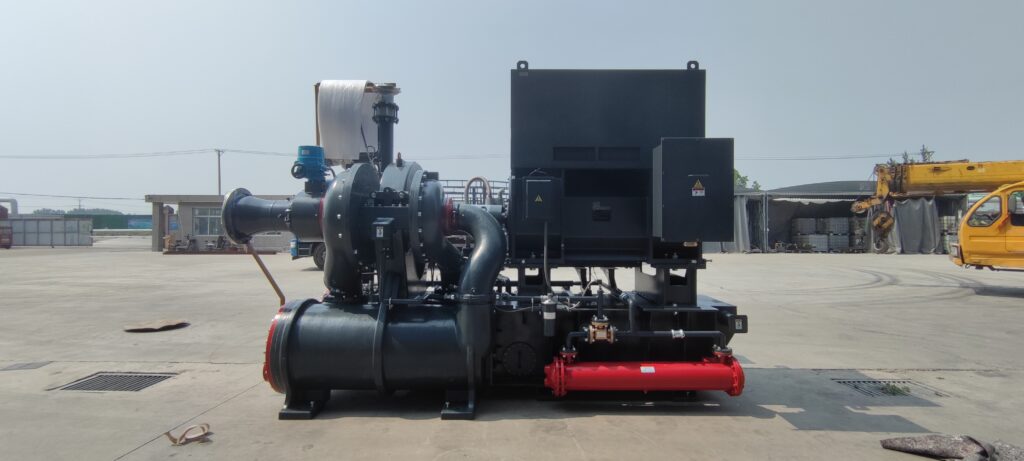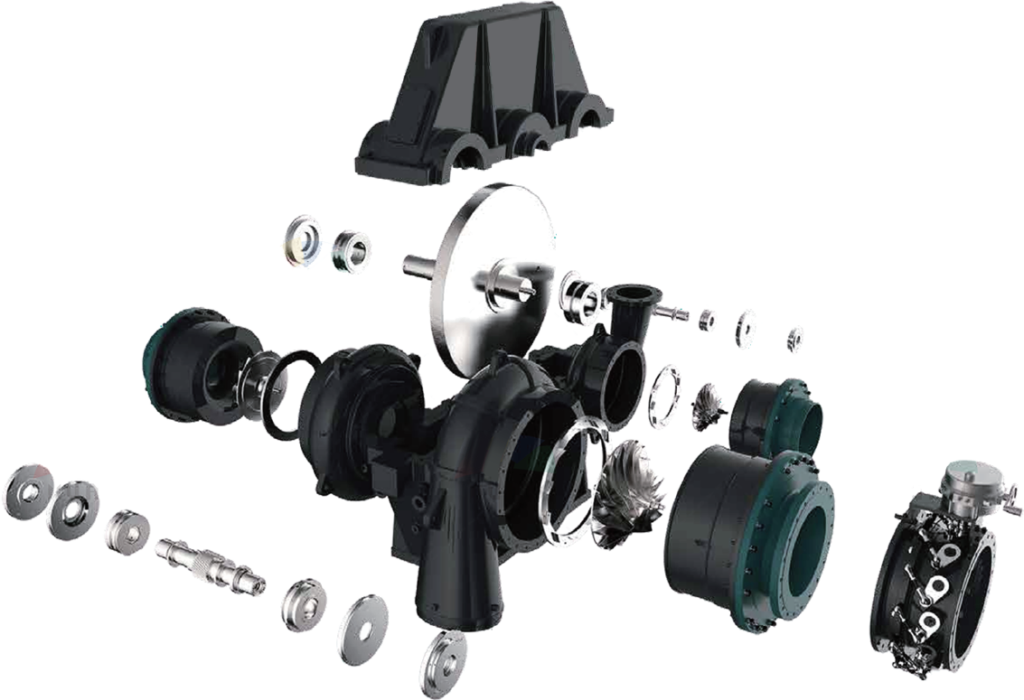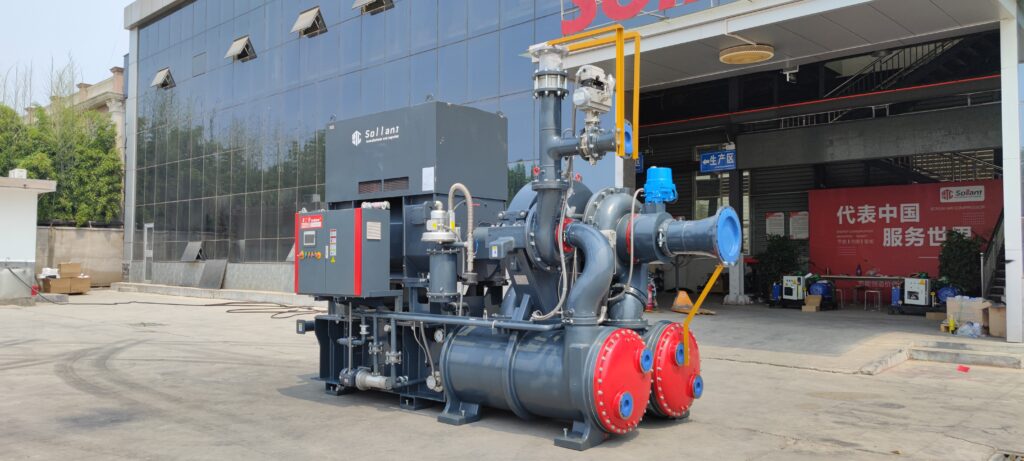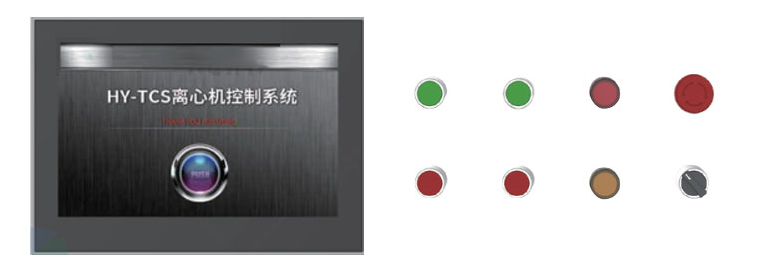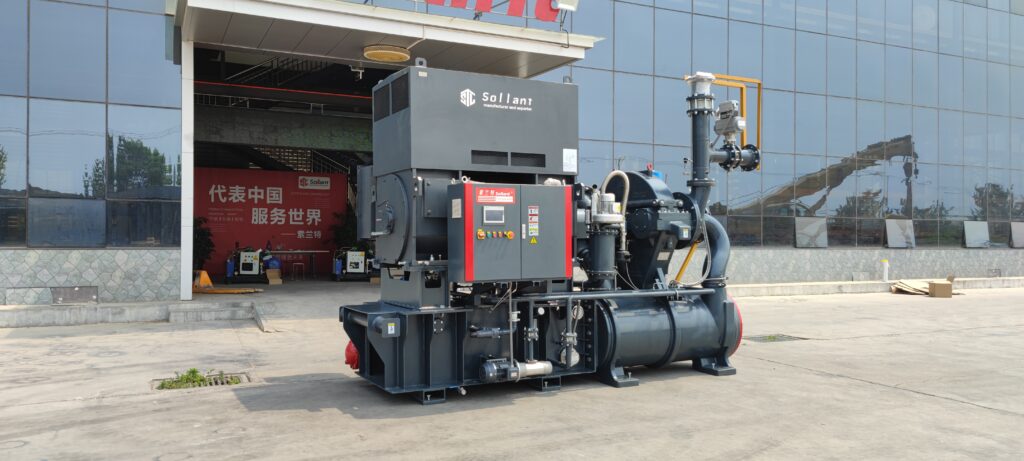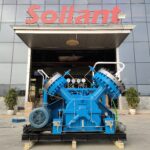1. What is the working principle of a centrifugal air compressor?
The centrifugal air compressor uses centrifugal force to develop pressure for different applications. Generally speaking, the centrifugal compressor is comprised of two parts:
Impeller–First, the air is introduced by the suction valve and strikes the impeller. With multiple radial blades rotating, this impeller generates a centrifugal force increasing the air speed and pushing the air into the center of the impeller till the diffuse area.
Diffuser–Unlike the impeller that is designed with rotating blades, the diffuser is designed with stationary vans. Thus, the velocity of the flow of the air decreases once the air enters the diffuse area.
To sum up, the centrifugal air compressor accelerates air from the center of the impeller and then slows it down in a diffuser. In this way the velocity of energy is converted into potential energy and consequently, the air is pressurized.
2. What are the applications of centrifugal air compressors?
There’s a wide range of applications of centrifugal compressors, including home use, commercial use, and industrial use, etc.
Industrial use–The centrifugal air compressor is more widely used for industrial applications and for this reason the centrifugal compressor is also known as “Petroleum and Chemical Air Compressors for Industry” or chemical air compressor for the industry. More specifically, this petroleum and chemical air compressor for the industry is used for the following.
Air separation–The ordinary atmospheric air is ~78% nitrogen and ~21% oxygen, with the remaining ~1% being made up of argon, carbon dioxide and trace amounts of other gases. These gases are needed in many industrial areas and can be obtained by an air separation process.
Oil refining–The petroleum and chemical air compressors for the industry is widely used at oil and gas refineries: the centrifugal compressors in oil & gas deliver high horsepower for the most demanding, high-pressure operations.
Chemical industry-In recent decades, petroleum and chemical air compressors for Industry are more and more widely used in the chemical process industries (CPI).
Due to its modern aerodynamic technique, its accurate rotating parts, its modern control mode, and variable-speed technologies, the centrifugal air compressor has become much more popular for use in chemical industries.
3. What are the advantages of Sollant Centrifugal Air Compressor?
Due to the popularity of this centrifugal air compressor in the industry, more and more centrifugal compressor manufacturers are dedicated to the production of centrifugal air compressors. Among so many centrifugal air compressor manufacturers, why choose Sollant Centrifugal Oil-free Air Compressors? The reasons are the following:
Oil-free design–The Sollant Centrifugal Air Compressor is designed with a simplistic lube oil system: the lube oil is drawn from the reservoir by the pumps and fed under pressure through coolers and filters to the bearings; after lubricating bearings, gears and couplings, the oil is drained back to the reservoir. Thus, the lubricant comes in no contact with the air-path ensuring the compressed gas with high purity.
Integrated design–The Sollant Centrifugal Oil Free Air Compressor is equipped with a motor, gears, filters, coolers, and pipping; this integrated design ensures high efficiency and high purity in the gas compression.
Easy operation–Our Sollant Centrifugal Oil Free Air Compressor is featured by an integrated control system with Siemens PLC and LCD screen. This control system optimizes the surge control and energy saving.
In summary, Sollant Centrifugal Oil-Free Air Compressors are compact, efficient and reliable. For more details, please click: Sollant Centrifugal Air Compressor

